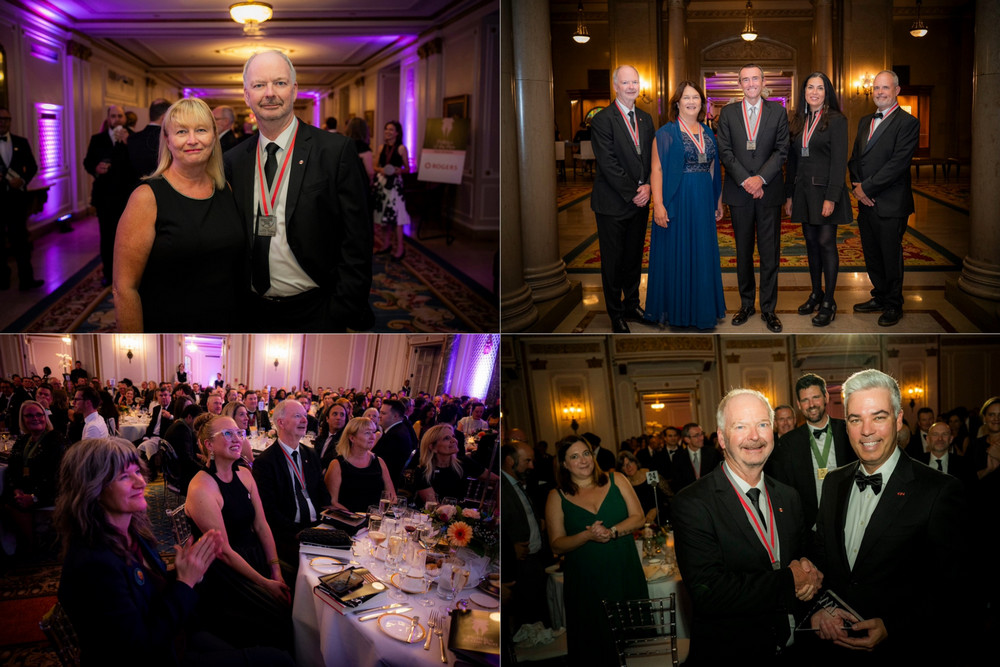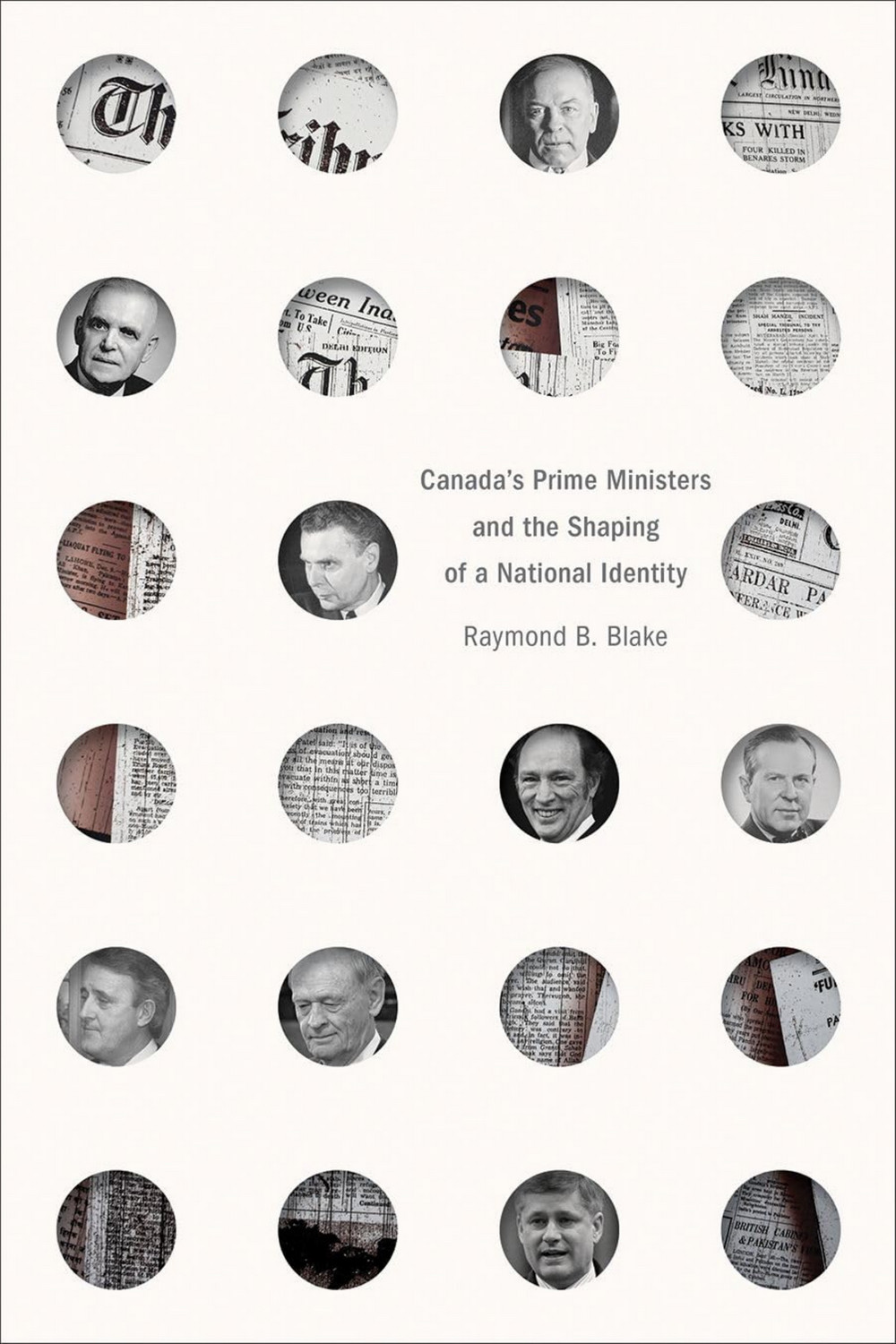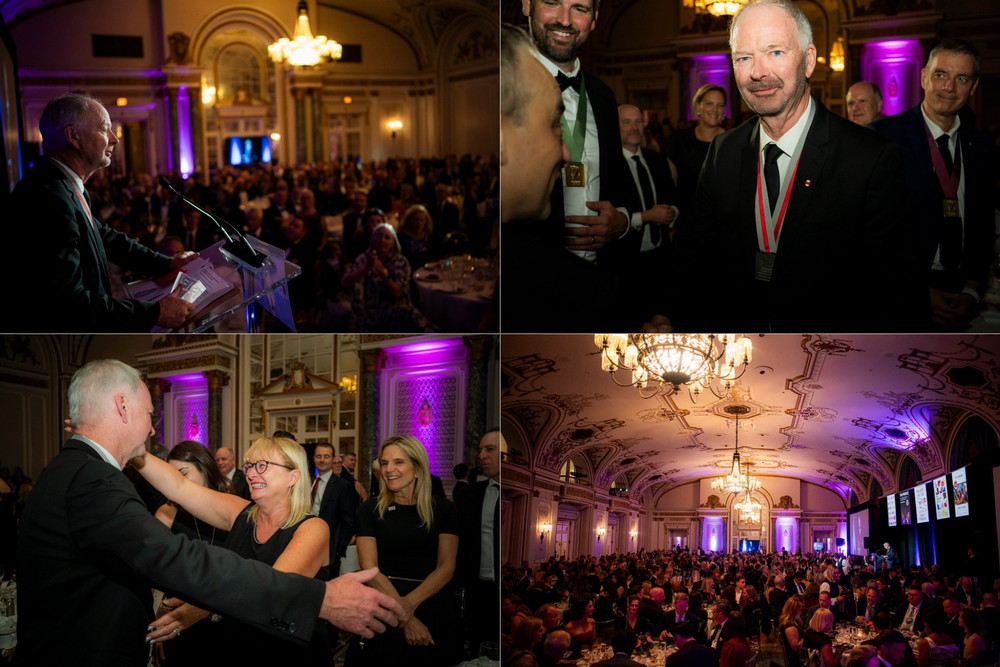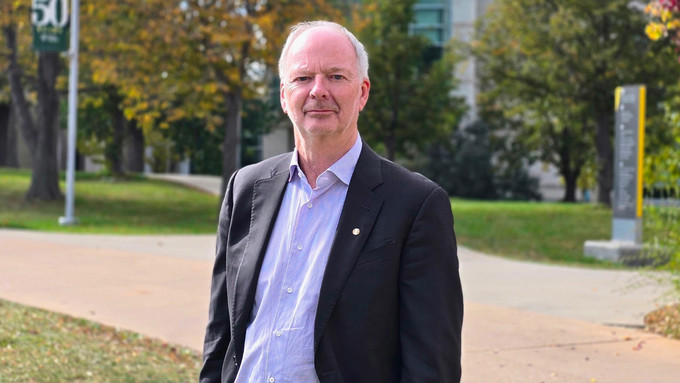On the evening of September 24, 2025, in Ottawa, a gala brought together 500 of the most influential figures in Canadian politics, government, and industry. The room was buzzing with excitement as the winner of the 2025 Writers’ Trust Shaughnessy Cohen Prize for Political Writing was announced. The prize, one of Canada's most distinguished literary honours, went to the University of Regina’s own Professor of History, Dr. Raymond Blake, for his incisive book, Canada’s Prime Ministers and the Shaping of a National Identity.
I thought about where I came from as a kid, going to a two-room school and to get to this point is quite a journey in one generation. — Dr. Raymond Blake, Professor of History, Faculty of Arts, University of Regina
For Blake, a fellow of the Royal Society of Canada and one of the five writers shortlisted from 34 books across the nation, the moment was surreal.
"I had not prepared an acceptance speech because I didn't really think I would win," Blake reflects. "An academic book from an academic press, written by a historian, normally doesn't win."
When his name was announced at the annual Politics and the Pen gala, the feeling was a mix of pure happiness and sheer disbelief.
The news was met with immense pride across the U of R community. Dr. Jeff Keshen, President and Vice-Chancellor of the U of R, praised the achievement, noting its significance for the entire institution.
"Dr. Blake’s achievement is a proud moment for the entire university," said Dr. Keshen. "Winning the Shaughnessy Cohen Prize is a testament not only to his brilliant scholarship on a topic as vital as Canadian identity, but also to the nationally significant research being conducted by our faculty. This recognition reflects very well on our university as a whole, and we are thrilled to celebrate this stellar accomplishment."

A Journey in One Generation
Receiving the award was more than a professional milestone. It was a deeply emotional moment that brought Blake’s own life journey into sharp focus.
“I thought about where I came from as a kid, going to a two-room school and to get to this point is quite a journey in one generation,” he shares.
His personal story stands in stark contrast to the corridors of power he now writes about.
"My mother went to school for a couple of years, but my father never went to school a day in his life and could not read or write. I think there was some celebration and pride because our family valued education, but the opportunity did not exist for them."
The overwhelming number of congratulatory notes he received post the award announcement, from childhood friends and family in Newfoundland has been a powerful reminder of how far he has come and the people who have supported him along the way.
The Stories That Build a Nation
This sense of journey—of progress, change, and identity-building—is the intellectual core of Blake’s award-winning book. After authoring more than 20 books on Canadian politics and history, he noticed a profound pattern in his research: prime ministers are constantly telling stories.
"It struck me that prime ministers tell stories that do not always relate to the policies they are implementing,” he says. “I wondered why they are creating narratives; they want us to imagine a particular type of nation and society."
His book delves into hundreds of prime ministerial speeches from 1945 to the present, tracing how leaders from William Lyon Mackenzie King to Justin Trudeau have used rhetoric to build a vision of Canada.
“Prime ministers are actively engaging in keeping the country together through stories," Blake identifies as the book's one-sentence thesis.
He argues that despite partisan differences, a remarkable continuity exists. Themes of unity, social citizenship, diversity, and inclusion have become the bedrock of the Canadian narrative because leaders, regardless of party, recognize they are essential for holding a complex nation together.

From the Classroom to the National Conversation
The desire to explore the "bigger picture" is something Blake brings directly to his students at the U of R. He sees his academic work not as an isolated pursuit but as an active conversation that must include the next generation.
Blake teaches a course on Canadian political history and has done two e-books with the students through open learning, highlighting how he engages students directly in his research. Blake says.
"This helps them to see that there are different ways of looking at history, and it teaches them about publishing and writing something into a book."
This approach transforms students from passive learners into active contributors to the historical record. When asked what he hopes students take away from his work, his answer is clear: ditch the emotion and think critically.
"Look at our political leaders and listen to their arguments, stories, and narratives,” he advises. “They know they have a responsibility to create a nation that we are all proud of."
A Continuing Legacy
Now that he has completed this award-winning work, which has already sold out its first print run and is being reprinted—a testament to its resonance. Blake is not slowing down. He has a new book co-authored with U of R President and Vice-Chancellor Dr. Jeff Keshen coming out in December, another book already with a publisher for May, and he is half-done a book on Prime Minister Pierre Trudeau and foreign policy.

For a historian dedicated to understanding the nation's story, this award is a milestone in a continuing journey of discovery and contribution.
A journey that began in a small, isolated fishing community in Newfoundland, has led to one of the nation's most prestigious literary prizes, proving that the stories we tell and the people who tell them, have the power to shape not only a life but a country.
Inspired by Dr. Blake's work? Discover the wide range of programs offered by the Faculty of Arts, University of Regina.
About the University of Regina
At the University of Regina, we believe the best way to learn is through access to world-class professors, research, and experiential learning. We are committed to the health and well-being of our more than 16,600 students and support a dynamic research community focused on evidence-based solutions to today’s most pressing challenges. Located on Treaties 4 and 6—the territories of the nêhiyawak, Anihšināpēk, Dakota, Lakota, and Nakoda peoples, and the homeland of the Michif/Métis nation —we honour our ongoing relationships with Indigenous communities and remain committed to the path of reconciliation. Our vibrant alumni community is close to 95,000 strong and enriching communities in Saskatchewan and around the globe.
Let’s go far, together.
